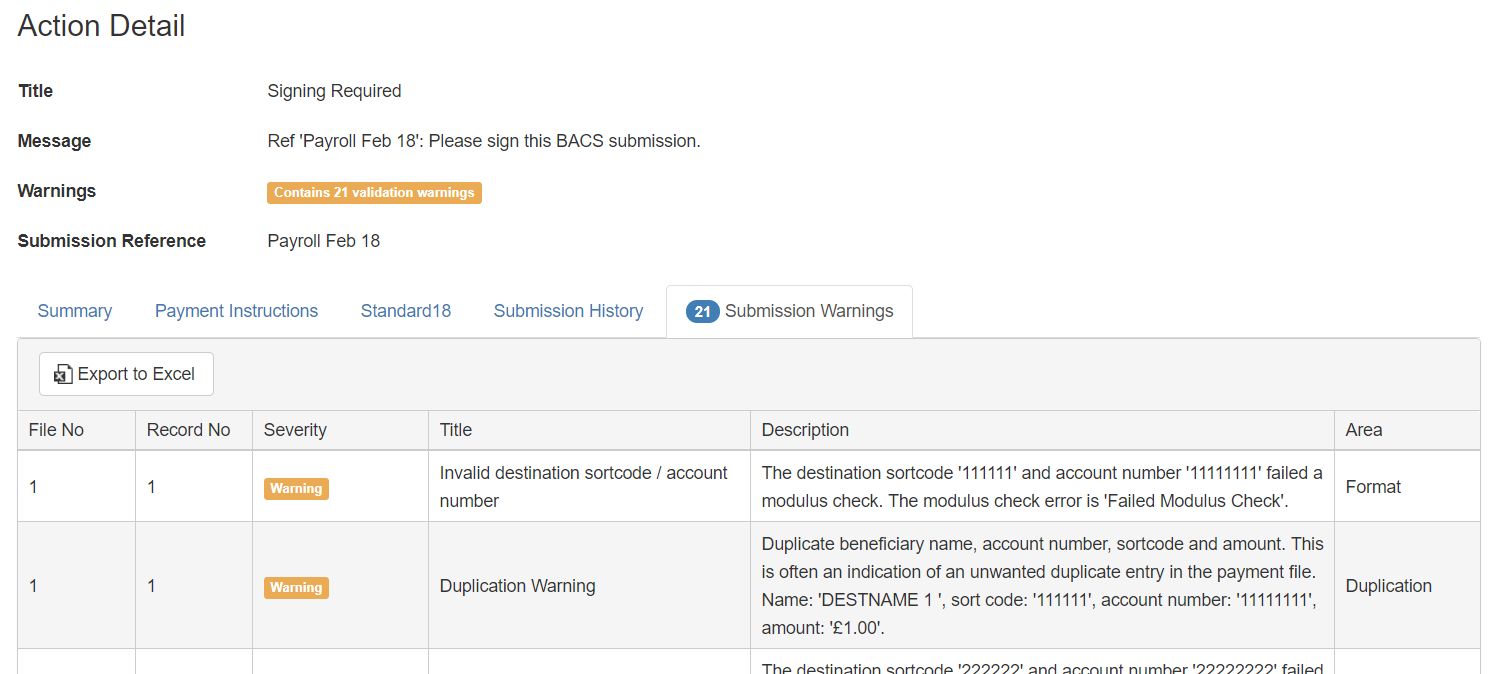What's New in PayGate 2.1.3
PayGate BACS Payments
New Anti-Fraud checks
Before PayGate will upload a payment file to BACS it checks each payment using several dozen validation checks. From version 2.1.3 we have started adding extra checks that can help to detect certain types of financial frauds.
Extra duplication checks
PayGate has always checked an imported payment file to determine if has already been processed but from 2.1.3 we have broadened the duplication checking. PayGate now checks if any two (or more) payments share the same beneficiary name, sort-code, account number and amount. Any duplicates are marked in the validation results as 'Warnings'.
Duplicate Beneficiary
Beneficiary name, sort-code and account number are all identical in two or more payments
Duplicate Payment
Beneficiary name, sort-code, account number and amount are all identical in two or more payments
The duplication checks are applied at file or block level. Therefore within a Bureau Submission, payments from different job detail lines or from different blocks of a Standard 18 file are not considered duplicates.

Validation results visible within actions.
Validation warnings now travel with the action. When viewing the signing or approval action the warnings can be viewed and considered before completing the action.

PayGate Direct Debit Management (DDMS)
Schedule Suppression
You can now suppress a groups direct debit collection schedule for certain parts of the year. For example you can suppress all collections between 1st November and 31st December.

To learn more about DDMS Suppress see this page.
Payer Date of Birth
We no longer collect the date of birth of payers. This update is part of our PayGate GDPR strategy.
PayGate Direct Debit Management System - API
We have added new functions to the PayGate Direct Debit Management System (DDMS) API.
A way to update a payers schedule with a number of changes in one call. A new message called 'Multiple Schedule Update' is then sent to the payer. This new message contains a schedule of future collections.
Several custom messages can be defined to suit your individual business requirements. This function can be used to send those messages to your payers. Like other messages in PayGate, the custom message can contain dynamic information used tokens.
More information on the PayGate DDMS API can be found here